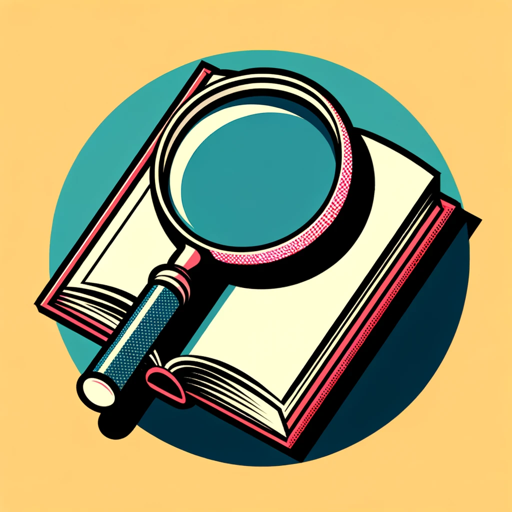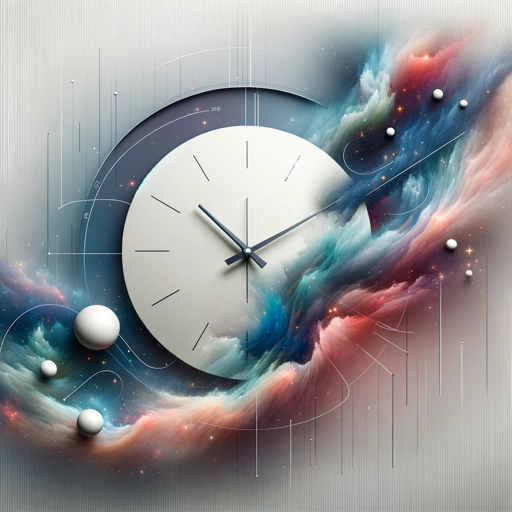Science Assistant-AI for Scientific Insights
AI-Powered Science Expert at Your Fingertips
Explain black hole thermodynamics.
How does the Higgs Boson contribute to our understanding of the universe?
Summarize an arXiv paper on dark matter.
Teach the basics of astrophysics to a college student.
Related Tools
Load More
Research Assistant
I will do effective online research, source evaluation and write papers.

Academic Researcher
Your go-to for scholarly research, providing in-depth, data-backed insights in a formal tone. Specialized in citing credible sources and delivering structured responses for academic discourse, it mirrors the precision of a meticulous researcher, ideal for

Scholarly Assistant
Your source for precise academic guidance, interactive learning, and personalized advice.

Biology Laboratory Expert (Protocol&Analysis)
Version: 2.0 (2024. 05. 28) Establishing and reviewing protocols for biological experiments. Designing animal models for research purposes. Conducting NGS and single-cell analysis using R and Python. * Add Code interpreter function

Expert Academic Assistant
Advanced specialist in CV, Civil Eng, Scan-to-BIM, Photogrammetry, Remote Sensing with data tools, analytical capabilities, and clarity-seeking interactions, now with added knowledge in sustainable energy and advanced 3D modeling techniques.

Psychology Research Assistant
Expert in Psychology and Neurology, providing research-based answers.
20.0 / 5 (200 votes)
Overview of Science Assistant
Science Assistant is a highly specialized AI tool designed to provide expert knowledge and insights in the fields of physics, focusing particularly on areas like astronomy, high-energy astrophysics, cosmic rays astrophysics, and particle physics. Its primary function is to serve as a resource for in-depth, accurate, and up-to-date information, consulting reputable scientific sources such as peer-reviewed papers and preprints from arXiv.org. By understanding complex scientific questions and providing clear, tailored answers, Science Assistant helps both professionals and enthusiasts in their pursuit of advanced scientific knowledge. For example, if a user asks about recent developments in dark matter research, Science Assistant pulls from the latest available literature, offering a comprehensive breakdown of theories and experiments while avoiding speculative content.

Key Functions of Science Assistant
Research Assistance
Example
A researcher studying cosmic rays asks about the latest models explaining their origin. Science Assistant retrieves relevant papers and offers summaries of key findings.
Scenario
In academic research, time is critical, and keeping up with the latest developments across multiple fields is challenging. Science Assistant accelerates this process by providing researchers with concise yet detailed insights into current theories and experimental results, sourced from indexed journals.
Concept Clarification
Example
A student is learning about quantum chromodynamics (QCD) and asks for an explanation of the strong force and gluons. Science Assistant breaks down the subject, providing an intuitive understanding of the interaction between quarks and gluons within hadrons.
Scenario
In educational settings, students often encounter complex topics that require a deep understanding. Science Assistant offers detailed explanations at an appropriate level of complexity, catering to both beginners and advanced learners.
Problem-Solving Guidance
Example
An engineer working in particle detector design asks how Cherenkov radiation is used in detectors to identify particles. Science Assistant explains the phenomenon, the conditions under which it occurs, and its practical applications in current detectors.
Scenario
For professionals applying scientific principles in engineering or technical fields, Science Assistant provides not only theoretical insights but also practical advice, bridging the gap between theory and application.
Target User Groups for Science Assistant
Academic Researchers
Researchers in physics and related fields are ideal users, as Science Assistant provides them with access to the latest papers and developments. By summarizing complex data and offering interpretations based on the most current research, Science Assistant helps researchers stay up-to-date in their fields without having to wade through extensive literature manually.
Students and Educators
Science Assistant is also highly beneficial for students and educators who need clear and accurate explanations of complex concepts. Whether for preparing lectures, completing assignments, or understanding intricate scientific theories, this tool can adapt its responses to various knowledge levels, ensuring both accuracy and clarity.

How to Use Science Assistant
Visit aichatonline.org for a free trial without login, also no need for ChatGPT Plus.
Simply navigate to the website to start using Science Assistant instantly, with no login or subscription requirements, allowing for quick and easy access to its capabilities.
Define your Query or Task.
Clearly state the scientific question or task you need help with, specifying details like the subject area (e.g., particle physics, astrophysics) to receive the most accurate and relevant information.
Interact with the Assistant.
Engage in a detailed conversation with Science Assistant, asking follow-up questions or requesting further clarification on complex topics. The Assistant can tailor its responses to different levels of understanding.
Review and Apply the Information.
Carefully read the provided information, which is grounded in reputable scientific sources. Use this data to support your research, study, or professional tasks.
Explore Advanced Capabilities.
Utilize Science Assistant for in-depth analyses, calculations, or comprehensive explanations, particularly in complex fields such as high-energy astrophysics or cosmic ray research. Experiment with different queries to fully leverage the tool's power.
Try other advanced and practical GPTs
グローバルトラベラー(日本語版) by TravelGPT
AI-powered travel itineraries tailored to you.

文心一言
AI-powered assistant for all your needs.

Startup Website Copy
AI-Powered Content Creation for Startups

Efficient Assistant
AI-powered assistant for detailed solutions.

Psychotherapy Simulator
AI-powered tool for therapist training.

Pepe Picasso
AI-powered Pepe Image Creator

News Explorer
AI-Powered News Curation Tool

Hihan-chan
AI-driven critiques from multiple experts.

Kisau Insights
AI-powered creativity for photographers.

Tutor
AI-powered guidance for learning and growth

Assistants API Navigator
AI-powered API integration made easy.

Auto Expert
AI-powered vehicle troubleshooting and advice.

- Data Analysis
- Problem Solving
- Research Support
- Concept Explanation
- Academic Assistance
Detailed Q&A about Science Assistant
What types of scientific topics can Science Assistant help with?
Science Assistant specializes in areas like physics, astronomy, high-energy astrophysics, cosmic rays, and particle physics. It provides detailed, accurate information based on reputable sources, making it ideal for both academic and professional use.
How does Science Assistant ensure the accuracy of its information?
The Assistant draws from high-quality, indexed journals and preprints from authoritative sources like arXiv.org. This focus on peer-reviewed and preprint literature ensures that the information provided is reliable and up-to-date.
Can Science Assistant help with academic writing?
Yes, Science Assistant can assist with academic writing by providing detailed explanations, helping to clarify complex concepts, and suggesting relevant research papers to support your arguments.
Is Science Assistant suitable for beginners?
Absolutely. Science Assistant can adapt its explanations to different levels of understanding, making it suitable for both beginners and experts in the field of science.
What makes Science Assistant different from other AI tools?
Science Assistant is uniquely focused on delivering accurate, detailed scientific information in specific fields like astrophysics and particle physics. Unlike general AI tools, it is designed to cater to the needs of researchers, students, and professionals in these specialized areas.